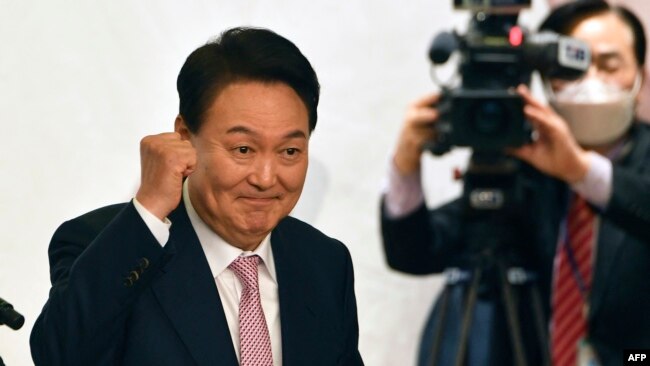???韓国人が一つ若返る??
年齢計算が複雑だとは聞いていたのですが、詳しく知りませんでした。
そうだったのですね〜!! 日本の”数え年”と”満年齢”の比ではありませんね。(すでに死語かもですが)
韓国の学校は、3月から新学期が始まり7月末までが一学期。 約一ヶ月の夏休みを挟んで,8月末から12月末までが二学期。 その後は2月末まで冬休みだそうです。受験戦争が激しい韓国、このまま導入しても、どの国も同じですが早生まれの問題があり、どうなるのでしょうか。
VOAで英語を学びましょう!!
こういうことが知れるって楽しい!!
韓国人の年齢が1歳若返るかもしれない(和訳)
South Koreans May Soon Be Considered One Year Younger
April 20, 2022
韓国人の年齢が少なくとも1歳若返る日が近いかもしれません。
来月にはYoon Suk-yeol 尹淑烈(ユン・ソクヨル)氏が次期大統領に就任する予定です。彼は、韓国の特殊な年齢計算方法を廃止することを約束しました。
韓国の制度では、すべての赤ちゃんは生まれた日にすでに1歳で、毎年1月1日に1歳ずつ年をとります。つまり、12月31日に生まれた子供は、翌日には2歳になるのです。
この伝統的な年齢計算方法は、かつて東アジア全域で広く使われていました。しかし、他の国々はとっくの昔に国際的に通用する方式に変えています。
この伝統的な計算方法がどのように発展してきたかは、よくわかっていません。一説によると、胎児の生命を認識するためのものだとも言われています。また、”ゼロ”という概念を持たない古代の数的体系に由来するという説もあります。
韓国は過去に伝統的な年齢計算方法から脱却しようと試みたことがあります。しかし、そのような努力はしばしば誤解を招くことになりました。
その結果、韓国には3つの年齢計算方法があります。どの方法がどの法律や行政手続きに関係するのかは、韓国人自身が学ばなければなりません。
1960年代以降、韓国の公文書や法律では、0歳で生まれ、誕生日ごとに1歳ずつ増えていく国際方式が採用されています。
しかし、社会的な場面では、多くの韓国人が伝統的な方式で年齢を計算し続けています。
また、0歳で生まれて毎年1月1日に1歳ずつ増える、いわゆる、年令方式もあります。この方式は、学校の成績や男性の兵役の時期などを決めるのに使われています。
1月に行われたHankook Researchの世論調査によると、韓国人の71%が伝統的な年齢制度の廃止を支持しています。
特に子供のころは、その年の後半生まれの人は取り残されたと感じます。それは、学校でずっと年上の上級生と一緒に授業を受けるからです。そのため、競争が激しい韓国の学校環境に、さらにプレッシャーがかかることになります。
Lee Yun-chulイ・ユンチョルさんは、東北部の江原道(カンウォンド)で飲食店を経営しています。伝統的な方式による9歳の彼女の息子は、学校では勉強が遅いと見られていると彼女は話します。
「でも、実際は遅くないんです。」と彼女は言います。「彼は他の同年齢の子供たちと比べて、遅く[10月に]生まれただけなのです。」と。
韓国人男性の場合、その年の後半生まれの人は他の子より何カ月も早く兵役に就かなければなりません。この差は小さいと思われるかもしれないが、教育や仕事に関する重要な決断に影響を与えることがあります。
最近では、保健当局がコロナウイルスの予防接種に異なる年齢基準を用いたため、多くの韓国人が不満を募らせました。その結果、多くの人が、まだ予防接種を受けることができない年齢層であるにもかかわらず、予防接種の証明書の提示を要求されたのです。
ユン氏は、韓国の年齢制限を撤廃することを選挙公約に掲げていました。
ユン氏は、韓国では国際年齢が法的にも社会的にも唯一の基準となることを提案しました。この取り組みは、おそらく幾分導入に時間がかかるでしょう。
過去に同様の試みは失敗していますが、専門家によれば、ユン氏の提案は成功する可能性があると言います。専門家は、この改革は韓国国民だけでなく、主要政党の間でも支持されていると指摘します。
South Koreans May Soon Be Considered One Year Younger
South Koreans may soon become at least one year younger in age.
Yoon Suk-yeol is set to become the country’s next president next month. He has promised to end the country’s special method of calculating age.
In the Korean system, all babies are already one year old the day they are born and get a year older every January 1. That means a child born December 31 would turn 2 years old the next day.
This traditional method of age calculation was once widely used across East Asia. But other countries long ago changed to the more internationally accepted system.
It is not fully known how the traditional method developed. One theory says the system is meant to recognize the life of a fetus. Others say the system comes from ancient, numerical systems that did not include the idea of “zero.”
South Korea in the past has attempted to move away from the traditional way of calculating age. But those efforts often led to misunderstandings.
As a result, South Korea now has three methods for calculating age. South Koreans must learn for themselves what method relates to which law or administrative process.
Since the 1960s, South Korean official documents and laws have used the international system, in which babies are born at age 0 and add a year every birthday.
However, in social settings, many South Koreans continued to calculate their age using the traditional method.
There is also the so-called, year-age method, in which babies are born at 0 and gain a year every January 1. This method is used to decide school grades and when males must perform their required military service.
According to a January public opinion study by Hankook Research, 71 percent of South Koreans support ending the traditional age system.
Those born later in the year often feel left behind, especially as children. That is because they are placed into classes at school with much older, more advanced students. This can add even more pressure to South Korea's highly competitive school environment.
Lee Yun-chul helps run an eatery in the northeastern province of Gangwon. She said her son, who is 9 years old according to the traditional system, is seen as a slow learner at school.
“But he’s not actually slow," she said. "He was just born later [in October], compared to the other kids in his ‘year-age’ group.”
For Korean males, those who are born later in the year must complete their required military service many months earlier than others. Although the difference may seem small, it can affect important education or job-related decisions.
Most recently, many South Koreans became frustrated after health officials used differing age standards for coronavirus vaccinations. As a result, many people were required to show proof of vaccination even though they were in an age group that could not yet get vaccinated.
Yoon made ending the Korean age system a major campaign promise.
Under Yoon’s proposal, international age would become the single standard for all legal and social purposes in South Korea. The effort would likely take some time to put in place.
Though similar attempts have failed in the past, experts say Yoon’s proposal may succeed. The experts note the change has support among both major political parties as well as the South Korean public.
Words in This Story
calculate - v. to find (a number, answer, etc.) by using mathematical processes
advanced - adj. far along in a course of progress or development
frustrated - adj. very angry, discouraged, or upset because of being unable to do or complete something
